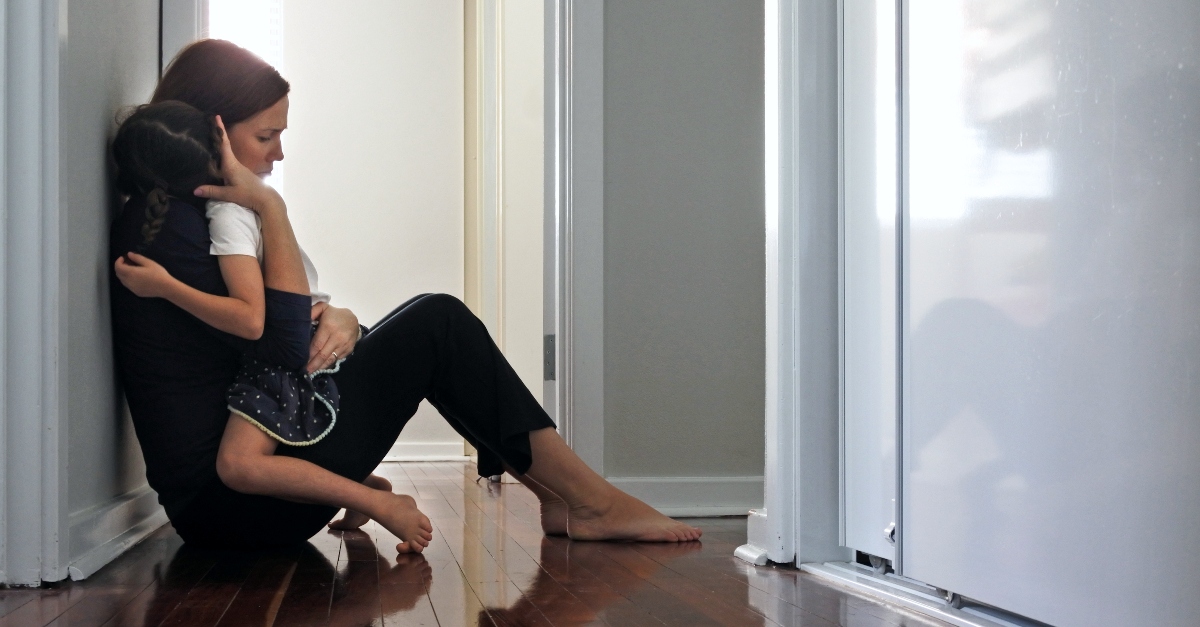How to Help Your Kids with Grief After the Loss of a Pet

The holidays are a time of love and joy, but some feel lingering sadness when precious memories resurface too. We lost our beloved cat of almost 17 years last fall. As a mom of three, parenting writer, and former chaplain, I'm writing this article to equip you with practical tips to help your family through pet loss and grief.
Looking back, I knew the day was quickly approaching when we would have to put our cat down. His health conditions were mounting. He was growing increasingly lethargic as his body was failing. None of us wanted him to suffer.
When the day arrived, I walked into our vet's office with my two older sons. My youngest son was a toddler; he stayed back with my husband because he was too little to understand. However, the vet was surprised to see my two older sons with me. They were grade and middle-school-aged at the time. As she looked at their tear-streaked faces, she asked me if I really wanted them to remain in the room.
I told her, yes, and my sons agreed. I had prepared them for this visit. We had talked through what would happen, and I had given them a choice to be present.
The Gift of a Good Goodbye
While their decision might not be what every child would choose, here are five reasons why I encouraged them to stay:
1. There is a gift in a good goodbye.
As a hospital chaplain, I've seen grief compound in situations of sudden loss. Standing with a loved one, in the end, is never easy, but it can assist in your healing and bring the one you love comfort. The opportunity to vocalize or demonstrate the importance of a loved one (pet or person) firsthand is precious and fleeting.
2. I knew this would be a formative experience.
I knew my sons would always remember the passing of their first pet. Therefore, I wanted the experience to be as helpful as possible and serve as a touchpoint. When they encountered future loss, I wanted them to remember what they learned beside me that day.
3. I wanted to empower them.
Feeling pain is uncomfortable. I welcomed my sons' tears, words, and gestures (as I expressed my own) in that moment of loss. But I also wanted to let them know that they could use their pain to help another. Our kitty would be comforted by their voices and tender hugs as his last memory. They could make a difference through their presence and bravery in that moment.
4. I wanted to model strength.
Having my children stay in the room took strength, for I was mourning too. I chose to model what I hoped to see from them. I didn't want them to see me as someone who was too fragile for their pain; instead, I wanted them to see what we could do together.
5. Confronting death is sad but important.
While acknowledging the reality of death is painful, it can also call us to action. I learned firsthand the gift of each day while working beside hospital beds. I was inspired to live wisely and fully, or to number my days, just as scripture encourages (Psalm 90:12). This is a powerful message for all of us, including children.
My goal is to raise children who are brave in the face of loss, empowered to make a difference through their life experience, and comfortable expressing complex emotions with the support of others. This isn't an easy goal. For one, popular culture celebrates and esteems youth, not aging. Second, death and loss are challenging topics to bridge in everyday conversation.
If you're experiencing the loss of a pet or loved one in your family, you're not alone, and there are resources available to assist you in navigating loss with wisdom and ushering in healing. I found a recent podcast on pet loss with Christian counselors Michelle Nietert and Sissy Goff particularly helpful; I'll include some of their insights here. Before I do, remember that grief often occurs in stages: denial, anger, bargaining, depression, and acceptance. It's normal to experience all or some of these stages. Also, people move through them at different rates.
Communication and Keepsakes
Because everyone responds to grief differently, having an open line of communication with our children is essential. Counselor Michelle Nietert recommends asking a child to rate their sadness on a scale from 1–10 after loss. Be curious. Ask why your child picks a certain number. Your goal is to understand your child and see improvement over time. If your child is still struggling with sadness after a series of months, don't be afraid to reach out to a counselor.

Photo Credit: ©iStock/Getty Images Plus/chameleonseye
What helped my children in the wake of our cat's passing was a tangible reminder. We purchased clay paw prints for each family member from the vet. We all treasure them. Whenever my children feel sad, I've noticed that they hold the paw print, trace the outline of his paw, and remember. Gravestones, funeral markers, and ashes provide a similar sense of remembrance. Some families decide to have a funeral service for their pets. Regardless of whether formal words are spoken, it's crucial to acknowledge loss with words. Counselor Michelle Nietert encourages children to write a letter to their lost pet. Putting their feelings into print can be healing. Counselor Sissy Goff suggests that children can talk to their lost pet in heaven. Talking allows the relationship to continue instead of it ending abruptly.
Resources
There are also children's books that can open the door for conversation between adults and children. The Fall of Freddie the Leaf: A Story of Life for All Ages, written by New York Times bestselling author Leo Buscaglia, Ph.D., is an award-winning children's book that teaches about loss. I have read the book to my children—it's often recommended. Counselor Sissy Goff suggests Dog Heaven by Cynthia Rylant. Cynthia also wrote a picture book to comfort children who have lost a cat called Cat Heaven.
While books can open the door for communication, loss is a natural time to talk to children about God. Faith can help children move through their grief as they learn traits about God. First, God can provide children with comfort because God understands their pain. God created all things, including their special pet. Second, loss is an important time to encourage children to lift their concerns to God in prayer. The Book of Psalms assures us that it's okay to express our sadness and even anger to God. He loves us, understands our pain, and will listen. Third, the life of a pet can demonstrate God's goodness. God provides us with pets to love and bring us joy. The Bible tells us that every good gift is from God (James 1:17). While the gift of a pet's life is temporary, love lives on.
As time passes, healing will come. Parents might choose to replace a lost pet quickly, not replace a pet, or wait a while until they bring another one home. Listen to your children. Again, children process grief at different rates. Regardless, the experience of love and loss is sure to teach our children lessons that touch on faith and make them stronger for the future. By being intentional, it can shape their character too.
Michelle Nietert is also a Crosswalk contributor! You can watch my “Chaos to Calm” interview with Michelle about her adolescent devotional and COVID-related counseling tips on-demand.
Photo credit: ©Getty Images/shironosov

Originally published December 06, 2021.







